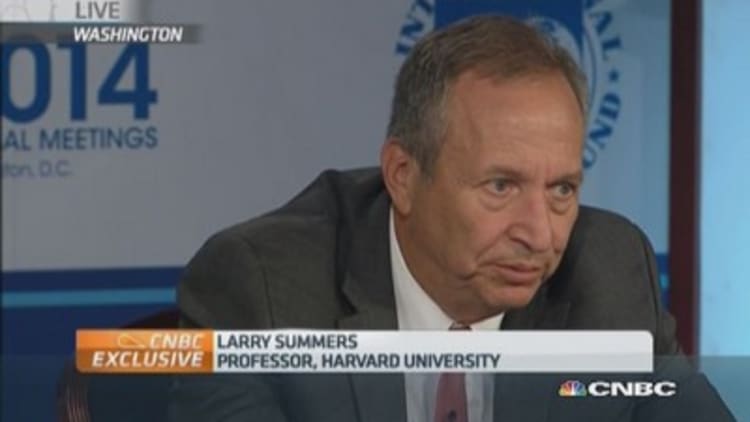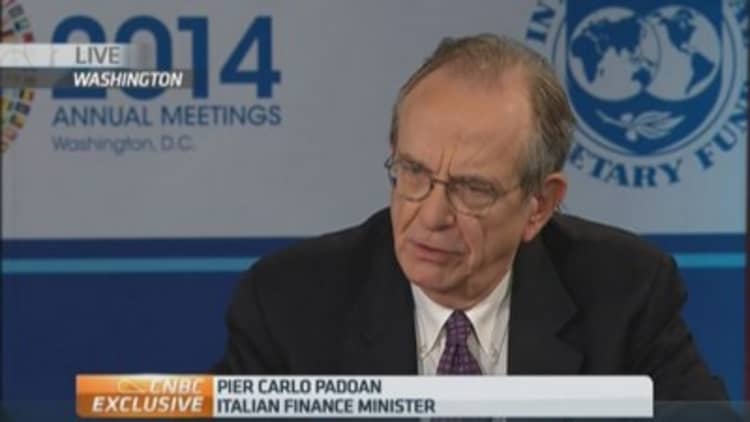




German Finance Minister Wolfgang Schäuble and former U.S. Treasury Secretary Larry Summers went head to head on Thursday, in a discussion over the best way to reinvigorate the European economy.
Speaking as a panelist at a CNBC-chaired International Monetary Fund (IMF) debate in Washington D.C., Summers claimed Europe's economic measures were simply "not working".
The renowned economist also compared Europe's lackluster growth to Japan's stagnation in the mid-1990s. He warned that, like Japan, the region could face years of deflation and "dismal" economic performance if it did not start investing more and reverse some of its current policies.
Read MoreEurope in danger of another 'lost decade': Ifo's Sinn
"What's happening in Europe is not working. What followed in Japan was 15 years of deflation and dismal economic performance, followed by dramatic declines in interest rates – that is the path that Europe is on without a substantial discontinuity in policy," Summers said at the debate.
Summers said Europe, and Germany in particular, should follow recent advice from the IMF to invest in infrastructure projects, which would "pay for itself " by lowering sovereign debt burdens.
However, Germany's Schäuble refuted comparisons with Japan, saying Europe was a "specific" case. "You can't compare (Europe) with Japan, nor with the U.S., to be very frank," he said in response to Summers.
"You have to know the specificities of Europe— on average (Europeans') expenditure for social purposes in relation to GDP is double compared to the U.S., Canada and Australia," he added.
Prospects 'not so great'
Last month, the IMF said Germany and other euro zone countries could benefit from ramping up infrastructure spending, adding that this type of public investment was most effective in countries with low-growth economies that were running below their potential.
Read MoreUBS Chairman: Don't give Germany the wrong diagnosis
According to IMF research, raising public investment by 1 percentage point of gross domestic product (GDP) in an advanced economy would increase output by about 0.4 percent that year, and by 1.5 percent after four years.

At the panel debate, IMF First Deputy Managing Director David Lipton said infrastructure investment was especially important for Europe because its growth prospects were "not so great". He stressed that increasing infrastructure investment should be considered by any countries where it was feasible—and said that in Germany, it could even have global benefits.
"(In Germany), if there can be some greater infrastructure spending, if that raises expenditure - as long as other policies are adjusted – Germany can do better itself, but also make a contrition globally through rebalancing," Lipton said.
The debate came as world leaders and top economists assembled in Washington for the IMF's annual meeting, and amid growing concerns about the strength of the euro zone's recovery.
Read MoreWhere did the German 'strongman' go?
Euro area GDP came in flat in the second quarter – below expectations – with some of the region's biggest economies, such as France, struggling to make economic headway. In addition, German economic data has disappointed over the last couple of months, in what could mark a worrying turn for the euro zone's recovery.
"We think that Europe could do better, and we worry that it may do worse," Lipton said on Thursday. ""The kind of low-inflation, low-growth scenario that is possible could set in."



